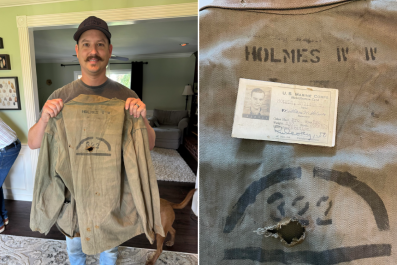A man was left regretting his decision to put money in the bank and leave it untouched for three years after discovering his account was noticeably depleted.
For millions of Americans, setting aside money for future expenses can be difficult. A Bankrate survey this year of 2,400 U.S. adults found that more than 1 in 3 workers feel they are living paycheck to paycheck.
However, for a Canadian man planning a big trip to the U.S., his efforts to save for the costs ended up being unexpectedly thwarted by his bank.
More From Newsweek Vault: Online Banks vs. Brick-and-Mortar Banks
In 2022, Hao Sun deposited $500 into an account with the Canadian Imperial Bank of Commerce (CIBC). The money then sat in the account for around three years. Sun told Newsweek he "was expecting to use it on a trip to the U.S. but never did."
A week ago, he decided to check the account's balance. He was not happy at what he saw: The balance had dropped to $461 because he had been hit by three years of "dormant account" fees.
"I had left it alone for over two years and was charged $20 three times, in May 2022, 2023, 2024," Sun said. "I talked to someone from the bank, and they just insisted it's their policy and refused to refund the fee."
More From Newsweek Vault: Checking Account vs. Savings Account: Which is Best for Your Finances?
A CIBC spokesperson told Newsweek that "personal accounts become dormant when there has been no client-initiated activity for 24 months," as the bank's website says.
"Clients are sent notices when their accounts have remained dormant for 2, 5 and 9 years. If a client does not reactivate their account after being sent notifications, service fees are applied," the spokesperson said. "Clients can reactivate these accounts by making certain transactions at their home banking center. Notices are sent in January, and clients have until the end of April to acknowledge the notice and avoid the dormancy fee."
The spokesperson also said that "clients can contact us to review a specific situation and we will work with them on potential solutions."
Sun nevertheless felt aggrieved enough by the charges to post a screenshot of his statement to Reddit under the handle u/standardtrickyness1. It quickly gained traction, with 12,000 upvotes and counting.
Some agreed with Sun that the fees were a bitter pill to swallow. "Time to switch banks," one user wrote.
"Assessing you a dormant account fee while they are using your money is predatory," a second commented. A third wrote: "I mean, they're holding your money and using it to make more money. How is that not enough?"
Another user said: "Many banks have a stipulation where you have to have a certain amount of money go into the account each month. It is a disgusting system as they are spending YOUR money to make themselves rich while also charging you fees."
Another commenter sarcastically quipped: "Thank you for trusting us with your money while we've been off investing it. Here's a $20 inactive account fee as a token of our appreciation!"
Others, however, were critical of Sun's management of the account.
"So you didn't even check your statements for over two years?" one said.
"You were informed in your statements. Why did you ignore two years worth of statements?" another asked.
A third wrote: "Accounts have to be dormant for years before they would charge you this, and I'm sure they would have attempted to contact you by phone or mail in anticipation of this so it's on you."
Regardless of the divided opinions over the post, Sun is still asking CIBC to refund the dormant account fees. "I don't think there is any justification for the charges," he said.
Disclaimer: The copyright of this article belongs to the original author. Reposting this article is solely for the purpose of information dissemination and does not constitute any investment advice. If there is any infringement, please contact us immediately. We will make corrections or deletions as necessary. Thank you.



